A monument to Sitting Bull, 1831-1890, on the Standing Rock Sioux Reservation in Mobridge, South Dakota. Photo: Brett Whaley
December 15 is the anniversary of Sitting Bull’s assassination by Bureau of Indian Affairs Police and U.S. Cavalry in 1890.
June 2, 2024, was the 100th Anniversary of the 1924 Indian Citizenship Act. Almost 150 years after American Independence, our Lakota were not U.S. citizens.
Native activists, such as Gertrude Bonin (Yankton), Carlos Montezuma (Yavapai-Apache) and Henry Standing Bear (Lakota), promoted American citizenship because Congress continued to sell Indian nation land against our wishes. The Indian Citizenship Act was needed to give Native peoples a voice: In the 14th Amendment, Congress acknowledged that “Indians not taxed” owe allegiance to Native Nations, so the Citizenship Clause does not apply to us.
For the past several years, American law firms falsely tried to use the 14th Amendment’s “Equal Protection” Clause as a sword to strike down the 1978 Indian Child Welfare Act and the 1988 Indian Gaming Regulatory Act, among others, so fairness requires a public review of the American history of the 14th Amendment.
America was at war with Native nations in the 1860s: In Minnesota, the Dakota were starving while settlers poured in and the Indian Agent withheld treaty rations. In Colorado, the Cheyenne, camped under America’s Flag, were massacred at Sand Creek despite Lean Bear’s petition to Lincoln for sanctuary. In North Dakota, Sitting Bull and our People were attacked by the U.S. Army. Red Cloud and Crazy Horse defended the Powder River country in Wyoming.
On December 21, 1866, Crazy Horse defeated the U.S. Army in the Fetterman Fight. On March 2, 1868, General Grant agreed to leave the Powder River Forts. In April 1868, the Indian Peace Commission met with our Lakota, and agreed to respect Indian lands. The Army left, so we burned the Forts. On November 3, 1868, President Grant was elected. Three days later, Red Cloud signed our 1868 Treaty, which says, “War … Shall For Ever Cease.”
The Treaty reserves the Great Sioux Reservation, including our Black Hills. President Johnson proclaimed the Treaty in February 1869, days before President Grant’s first inauguration on March 4, 1869. The Civil War and America’s Indian Wars paint the backdrop of the 14th Amendment. Just as the 14th Amendment was ratified, Ulysses Grant ran for President saying, “Let Us Have Peace.” The Indian Peace Commission negotiated over 40 Indian treaties.
Native nations must remind America of the truth: At its heart, the 14th Amendment means Peace and Freedom. In July 1866, Congress passed the 14th Amendment for state ratification to protect African-American Freedmen with Citizenship, Equal Protection and reformed Apportionment Clauses. Congress required confederate states to approve the 14th Amendment for re-admission to the Union. For Native Americans, the 14th Amendment affirmed Native Peoples self-governed by Native nations as Native citizens, recognizing Native jurisdiction in the Section 1 Citizenship Clause and expressly acknowledging “Indians not taxed” in the 14th Amendment Apportionment Clause.
In 1866, Senator Trumbull, the 14th Amendment sponsor working to secure its passage, explained that the Citizenship Clause does not apply to Natives because we owe allegiance to our Native nations. Trumbull said, “the very fact that we have treaty relations with them shows that they are not subject to our jurisdiction.”
In July 1868, while the Peace Commission negotiated our Treaty, President Johnson proclaimed the 14th Amendment’s ratification. Our 1868 Sioux Nation Treaty says when we become American citizens, we reserve our treaty rights. In other words, we become dual citizens. In 1924, Congress passed the Indian Citizenship Act after Natives served in World War I.
In 1870, Chief Red Cloud told a crowd in Philadelphia: “I am a representative of … the first people of this continent…. You want to raise your children and make them happy and prosperous. We have children we want to raise and make them happy and prosperous…. All I want is what is right and just.” At his second inauguration in 1873, President Grant sought “to bring the aborigines of the country under the benign influence of education and civilization. It is either this or a war of extermination.”
Sitting Bull said: “What law have I broken? Is it wrong for me to love my own? Is it wicked for me because my skin is red, because I am Lakota, because I was born where my father lived, because I would die for my people and my country?”
President Grant embarked on a mission to strip Native children Wakanyajea—the Creator’s sacred gifts—from parents and families. His mandate consigned children to Government and Church Boarding Schools with the mantra, “Kill the Indian, Save the Man.” Generations of Native children suffered mental, physical, and sexual assault by Priests, Nuns, teachers and principals in the Boarding Schools.
By 1876, President Grant sent Custer to attack our peaceful Little Big Horn village, killing women and children. With Sitting Bull and Crazy Horse leading us, we defeated the 7th Cavalry and ended Custer’s ambition to be President.
In 1877, after his surrender, the Army bayonetted Crazy Horse in the back. Congress, in violation of the Constitution and our treaty, took the Black Hills while Sitting Bull was a war refugee in Canada. When he returned, the Army made him a prisoner of war, yet he fought new land grabs. In December 1890, the Indian agent directed the B.I.A. Police and U.S. Cavalry to arrest Sitting Bull. They assassinated him by shooting him in the back.
Chief Red Cloud said, “We looked forward with hope to the time we could be as independent as whites and have a voice in the Government…. Our rations were again reduced…. You who eat three times a day and see your children well and happy cannot understand what a starving Indian feels! We were faint with hunger…. We held our dying children…. The Government sent the army to force our people back to the reservation prison….” Then the regrouped 7th Cavalry massacred Chief Big Foot and our Lakota at Wounded Knee.
Under the 14th Amendment, America must maintain Peace and Friendship with Native Nations. America honors the Constitution and our Treaties when it respects our Freedom as Native Nations. With respect, we call upon President Joe Biden to revoke the Medals of Honor issued for the massacre of our Lakota People.
Ryman LeBeau serves as Itancan (Chief) of the Cheyenne River Sioux Tribe — consisting of the Mnicoujou, Itazipco, Siha Sapa and Oohenumpa Lakota Bands.


